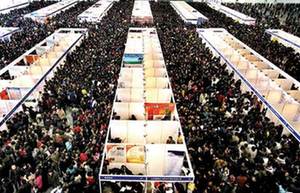The spread of sector expertise now available to both parties is also strengthened by the new venture .
The two companies previously concentrated on very different niche markets: Antal on fast-growing small and medium-sized enterprises in the healthcare, retail and IT supply chain, and Career on the finance, consumer products and medical devices sectors.Business for both sides is now more "complementary than competitive", Gao says.
Goodwin says there has been "a flux of talent coming into the UK", and many Chinese students are still studying in the UK.
"Many prefer to work in a Chinese company in the UK or other European countries, so Career and Antal can join in serving these groups, for instance," he says, adding that the line between local and imported talent continues to blur.
"We have already seen major Chinese companies buying or taking stakes in leading overseas companies - Lenovo buying IBM's PC business, for instance, and Geely buying Volvo - and we expect to see many more Chinese investments in Europe.
"People now care far less about where good managers came from, and more about their ability to do the job."
Both companies say they realize too, that modern recruiting, especially internationally, is a more precise process than in the past, when often the only requirement for clients was to fill the vacancy as quickly as possible.
Now, as well as finding the right person, companies want to make sure their brand is protected and promoted throughout the recruitment process, and that calls for specialist skills.
Gao uses the example of one of Career's clients, who insists on collecting feedback from job-seekers - successful or not - asking whether they felt comfortable during the process, and how that could be improved.
Recruitment methods are also changing rapidly.
In the 1980s, job adverts printed in newspapers, or even posted on billboards, noticeboards or street lights or power poles were the norm. In the 1990s, job fairs dominated the recruitment sector.
But today it is all about using the Internet to best effect, and in China that means understanding how to market through social media such as Weibo and even WeChat.
Two other significant changes have seen the recruitment process becoming more detailed, and more companies outsourcing the function, with all stages being handled by professional recruitment firms, including language tests and job interviews, even salary negotiations.
"In a traditional company, the human resources department used to take charge of these duties," adds Gao, "But companies need to recruit human resources staff first, before they can recruit others.
"When an economy is strong, that's fine, but when it slips, often the first thing to get cut is staff, maybe even HR staff.
"In a fluctuating economy, recruitment staff can change often, so many companies have found the more economical and efficient way is to outsource this function to specialized companies like ours," he says.
|
 |
 |
| Former college major offers few career options | Top 10 careers for new graduates |
